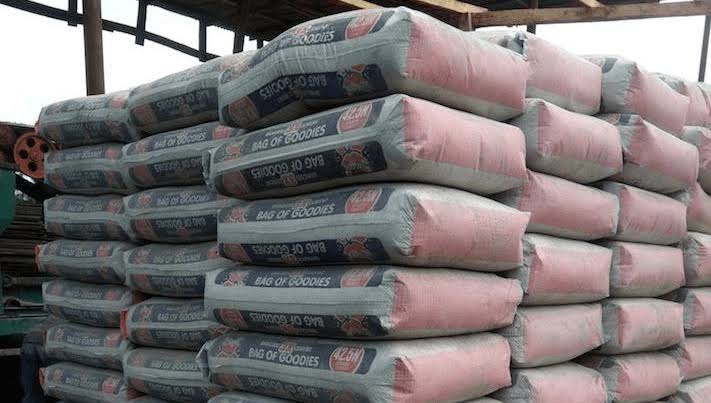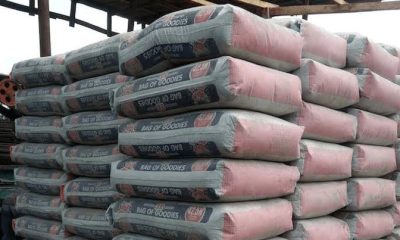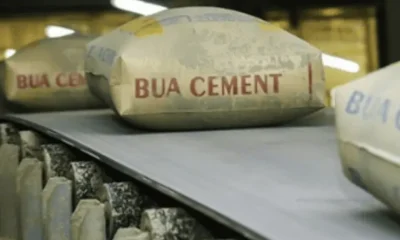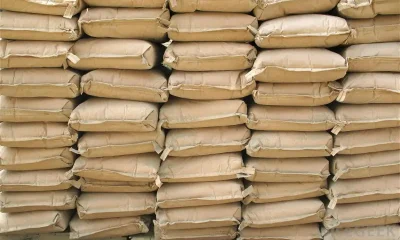Business
Dealers Reveal People Responsible For Increase In Price Of Cement

Amidst the twist to Nigeria’s ongoing cement price fluctuations, retailers have emerged as pivotal figures in determining the final cost to consumers, despite recent government directives aimed at reducing prices.
Okechukwu Uche, a prominent cement dealer based in Abuja, spoke with BusinessDay and sheds light on the complexities of the market dynamics that continue to influence cement pricing across the nation.
According to Uche, the variation in cement prices can be attributed largely to the practices of retailers and wholesalers who dictate the market’s pulse.
This revelation comes amidst efforts by the Nigerian government to enforce price cuts from manufacturers, hoping to make housing more affordable for its citizens.
Uche’s insights reveal a cautious approach among traders waiting until the end of the week to assess the market’s response to government interventions.
“There’s a speculation that prices might fall below ₦8,000, but the reality on the ground is dictated by the retailers,” Uche remarked.
He pointed out that the discrepancies in pricing across various brands and locations stem from differences in procurement methods.
Some retailers source their stock directly from manufacturers, while others rely on secondary dealers, which adds to the cost.
Furthermore, registration with major manufacturers like Dangote requires substantial investment, contributing to the variations in retail prices.
Despite governmental pressure on manufacturers to lower their prices, the expected decrease has been slow to materialize.
Retailers, holding significant sway over the market, have been reluctant to adjust their prices immediately, maintaining a high cost for end-users.
However, a recent market survey conducted in the Federal Capital Territory, Abuja, as well as in Niger and Nasarawa states by the platform, indicates a slight decrease in cement prices.
While some traders with older stock continue to sell at around ₦9,500 per bag, newer prices have been observed to range between ₦8,000 and ₦8,500.
This suggests a potential for further reductions, although not to the previously low levels of ₦5,000 per bag.
Despite these challenges, the leading cement brands in Nigeria, including Dangote, Lafarge, and BUA, have maintained relatively similar prices for their 50kg cement bags.
The survey also highlights that purchasing cement in bulk, by trailer load, remains the most cost-effective option for consumers, with all major brands offering competitive wholesale rates.
As the Nigerian government and cement manufacturers navigate the complex terrain of price regulation, the role of retailers in shaping market dynamics cannot be overstated.
The coming weeks are critical as stakeholders across the board wait to see the full impact of regulatory efforts on cement prices, an essential commodity in the nation’s construction and housing sectors.
Uche said, “In the Federal Capital Territory (FCT), Niger, and Nasarawa States, prices have witnessed a significant decline compared to previous levels, which exceeded N13,000 per bag before government intervention.”
According to him, current prices for major cement brands in these states show Dangote selling for ₦8,000 to ₦9,500, Lafarge selling for ₦8,000 to ₦9,300, while BUA goes for ₦7,500 and ₦9,000.






